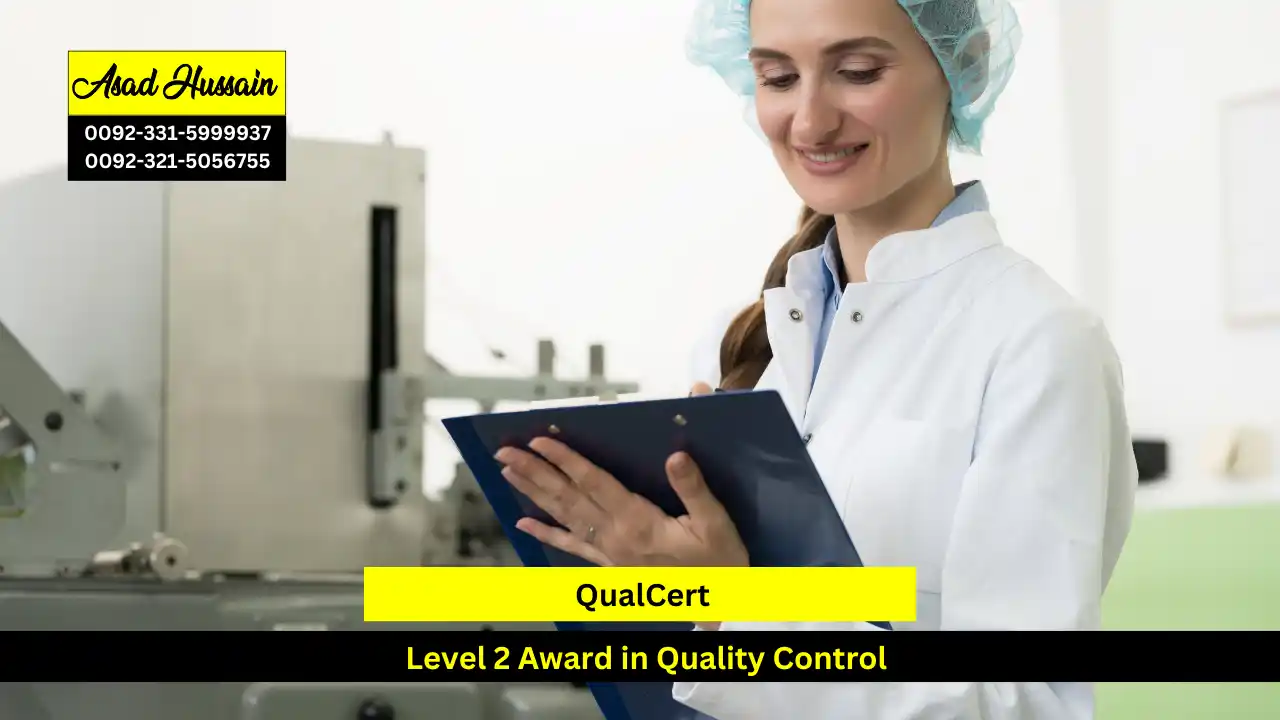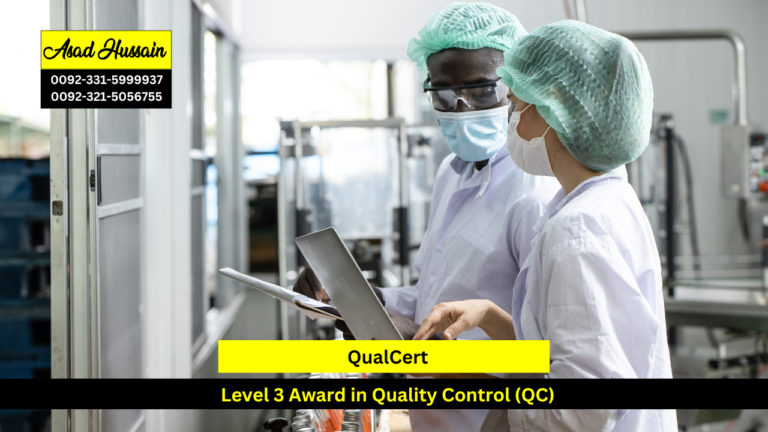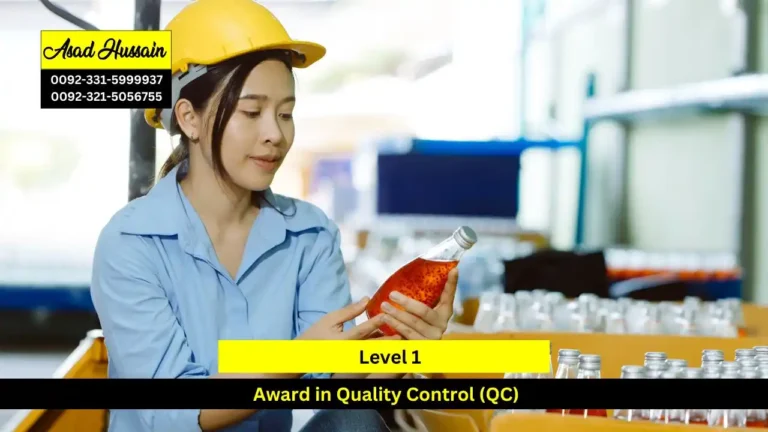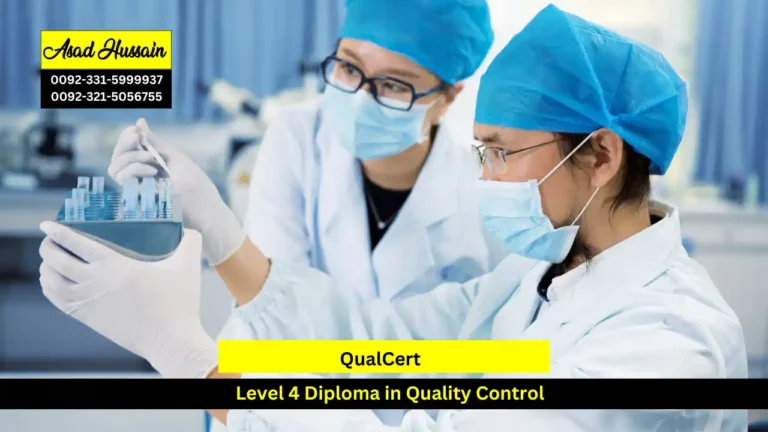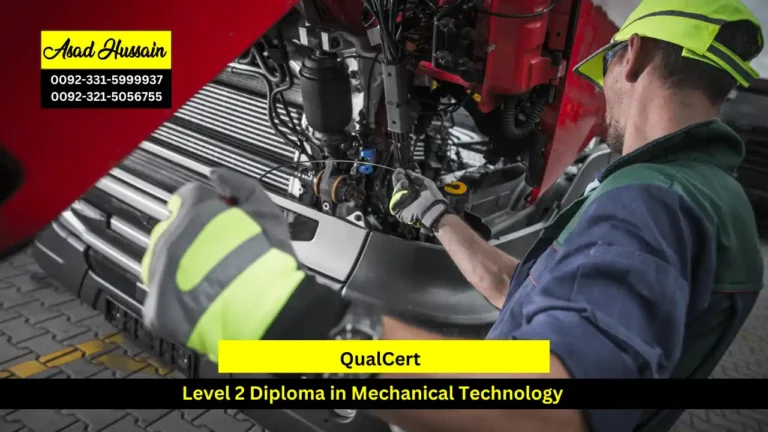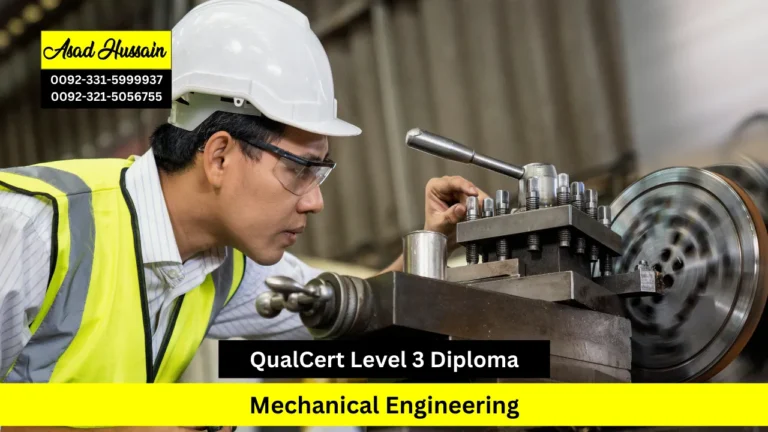In today’s competitive business landscape, maintaining high standards of quality is essential for success. Whether you’re in manufacturing, service delivery, or any other industry, ensuring that your products or services meet customer expectations is paramount. This is where quality control (QC) plays a crucial role. The QualCert Level 2 Award in Quality Control offers a structured approach to developing essential skills in QC, empowering professionals to contribute effectively to organizational success through meticulous quality management.
The QualCert Level 2 Award in Quality Control is a certification program designed to equip individuals with foundational knowledge and practical skills in quality control practices. It focuses on understanding the principles of quality management, mastering techniques for inspecting and testing products or services, and implementing corrective actions to maintain and improve quality standards. This qualification is recognized internationally and serves as a testament to an individual’s proficiency in QC methodologies.
In conclusion, the QualCert Level 2 Award in Quality Control is a valuable investment for professionals aspiring to excel in quality management. Whether you’re looking to strengthen your current skills or embark on a new career path in quality assurance, this certification equips you with the knowledge and competencies needed to uphold and improve quality standards within your organization. Take the next step towards becoming a proficient quality control professional and contribute to fostering excellence and customer satisfaction in your industry.
Program Highlights
Mandatory Units
- Module 1: Quality Control Principles and Concepts
- Module 2: Quality Control Tools and Techniques
- Module 3: Quality Standards and Regulations
- Module 4: Quality Inspection and Testing
- Module 5: Quality Documentation and Reporting
- Module 6: Advanced Problem Solving
- Module 7: Quality Assurance and Continuous Improvement
- Module 8: Safety and Quality Integration
- To ensure that participants can effectively engage with and benefit from the Level 2 Award in Quality Control (QC) course, we have established the following entry requirements:
- Educational Background: Typically, participants should have a high school diploma or its equivalent (such as a GED). Some programs may require a minimum level of education, such as completion of secondary education, to ensure participants have basic academic skills.
- Language Proficiency: Proficiency in the language of instruction (usually English) is essential to comprehend complex course materials, actively participate in discussions, and complete written assignments.
- Age Requirement: Participants must be at least 18 years of age to enroll in this course.
- Industry Experience: While not always required, some programs may prefer or recommend that participants have some prior industry experience related to the field they intend to study. This can provide valuable context for understanding quality control principles.
- Quality Control Principles and Concepts
- Understand the fundamental principles and concepts of quality control.
- Explain the importance of quality control in ensuring product or service conformity.
- Apply quality control principles to improve organizational processes and outputs.
- Quality Control Tools and Techniques
- Identify and utilize various quality control tools and techniques, such as statistical process control (SPC), Six Sigma, and lean methodologies.
- Apply appropriate tools for data analysis and decision-making in quality control processes.
- Evaluate the effectiveness of different tools and techniques in improving quality outcomes.
- Quality Standards and Regulations
- Interpret and apply relevant quality standards and regulations, including ISO standards and industry-specific regulations.
- Ensure compliance with quality requirements and standards throughout organizational processes.
- Analyze the implications of non-compliance and propose corrective actions.
- Quality Inspection and Testing
- Conduct thorough quality inspections and tests to verify product or service conformity.
- Evaluate inspection and testing results to determine compliance with specified requirements.
- Develop and implement inspection and testing protocols to enhance quality assurance.
- Quality Documentation and Reporting
- Create and maintain accurate quality documentation, including inspection records, test reports, and quality metrics.
- Communicate quality information effectively through comprehensive reports and presentations.
- Utilize documentation and reporting to track quality performance and support decision-making processes.
- Advanced Problem Solving
- Apply advanced problem-solving techniques, such as root cause analysis and fishbone diagrams, to identify and resolve quality issues.
- Implement corrective and preventive actions to address recurring quality problems.
- Facilitate continuous improvement initiatives based on problem-solving outcomes.
- Quality Assurance and Continuous Improvement
- Implement quality assurance processes to prevent defects and ensure consistent quality outputs.
- Monitor quality metrics and performance indicators to identify opportunities for improvement.
- Develop strategies for continuous improvement to enhance overall organizational effectiveness and customer satisfaction.
- Safety and Quality Integration
- Integrate safety considerations into quality management processes to ensure product and workplace safety.
- Evaluate the intersection of safety and quality requirements to mitigate risks and hazards.
- Promote a culture of safety and quality integration within the organization to achieve sustainable operational excellence.
These learning outcomes provide a comprehensive framework for developing essential skills and knowledge in quality control across various organizational contexts.
The course on quality control is designed for professionals across diverse industries who are committed to ensuring and enhancing product or service quality within their organizations. It is particularly beneficial for quality control technicians, quality assurance officers, manufacturing supervisors, and anyone involved in production processes where maintaining high standards is critical. Additionally, individuals seeking to enter quality management roles or those looking to update their skills in accordance with current industry practices will find this course invaluable. Whether you are in manufacturing, healthcare, construction, or another sector requiring stringent quality standards, this course equips you with the knowledge and practical skills needed to effectively implement quality control measures, improve processes, and contribute to organizational success through consistent quality assurance practices.

